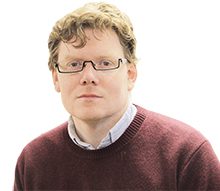This article appeared in the Times Education Supplement (TES)
“There is a serious risk of schools not fulfilling the promise and potential of the 2014 national curriculum or of academies not using their freedoms to achieve the same.” So warns Ofsted’s chief inspector of schools today in a bold intervention on the role of curriculum – and the importance of teachers thinking about curriculum – in our children’s schools.
It is not a surprise that Amanda Spielman has chosen to wade into this argument. She had made clear from the moment she was first considered for the job that she was concerned about how the content of what children were being taught (or not being taught) was being warped by pressures on schools, including those from – or those seen by teachers to be from – Ofsted, the organisation she currently leads, and Ofqual, the examination’s regulator which she used to chair.
The lively conversation about school curriculum since the advent of the coalition government in 2010 has been a breath of fresh air for long-serving teachers. New Labour thought little of curriculum: I remember attending a meeting during the first years of Labour in opposition of those interested in the party’s education policymaking, at which no one present – which included several former education ministers and current shadows – could remember why academies had been given freedom from the National Curriculum, or if the question was even important.
To have, as we do at present, an education secretary who will endorse “a rigorous, robust curriculum” (as she did recently at a Parents and Teachers for Excellence event), a schools minister who can by name identify education practitioners currently building effective curricula (as Nick Gibb did at a Policy Exchange Conservative conference fringe event last week), and, from Labour’s front benches, Angela Rayner’s ringing declaration that “the discoveries of maths and science; the great works of literature and art; the arc of human and natural history itself… all of it should be our common inheritance” is a far superior position. A chief inspector who will declare that “teaching to the test, rather than teaching the full curriculum, leaves a pupil with a hollowed out and flimsy understanding” is a powerful further shove in this direction.
Wider support needed
However, the extent to which the far-improved intentions of our system leaders are actually moving the dial in the classroom is more questionable. Policymakers should be concerned about how to make that difference, and the chief inspector’s argument has some pointers, but – as befits a school inspector – it remains resolutely focussed on what schools can do, and has less to say on the wider support eco-system for schools which might be drawn on to make a difference here.
Amanda highlights that the 2014 national curriculum establishes only a framework for curriculum decisions, not some structured plan teachers can simply follow. Unlike other jurisdictions, England does not have – and is not likely to acquire – government-approved textbooks to give flesh to the bones of the curriculum, so decisions about the precise specifics of what is taught and when will need to be made outside the Department for Education and therefore possibly in schools.
But it is not clear that schools are always the best place for this to be done. The chief inspector reports that “school leaders…said there was a time, long ago, when teachers were taught the theory that underpins curriculum planning”. Possibly, the archness of that conspicuously vague parenthesis means she is as sceptical of this claim as I am. One of the reasons for the establishment of the National Curriculum in the late 1980s was that teachers were creating their own curricula, often ones obsessed with laying waste to the disciplinary thinking of traditional academic subjects on grounds of anti-elitism. So while the progressive palaces of teacher training in past may have taught a version of curriculum theory, I would be far from happy for our current curriculum dilemma to be solved solely by their alumni. Some form of quality control for curriculum planning is essential.
Some of our leading multi-academy trusts – ARK, the Harris Federation (for whom I used to work on this issue) and Inspiration Trust – have invested in expert teachers, providing them with the time and space to develop systematic curriculum offering, along with immediately utilisable teaching resources and ongoing training in their deployment. But the economies of scale necessary to make this investment are not available to all schools.
Ofsted focus
Where else might schools be able to look for pre-made, expertly-built “curriculum solutions”, or even just certified high quality “raw curriculum material” from which to construct their own? One solution is to British cultural institutions which already have a significant investment in education: subject associations, learned societies (such as the Royal Colleges) and museums. Here can be found subject experts with far more time to engage in the nuances of disciplinary thinking, and who can design systems for such thinking’s appropriate development. Teachers are then freed to focus on “the final foot” – the gap between them and their students in which their expertise in classroom management and about the children in front of them allows them to deploy this high-quality curriculum material effectively.
Policy Exchange, the think-tank where I am head of education, is currently surveying such institutions to gather a greater understanding of what kind of educational offer they currently make. We are also interested in the sort of decisions teachers make about where they will derive material to support their curriculum planning from. If you are a teacher and are interested in participating in our survey, it can be found here.
Ofsted is moving in the right direction with their focus on a broad and balanced curriculum. It is essential that systems of support for schools be established so they can meet, effectively and efficiently, the demands of a well-rounded knowledge-rich education for all our young people.

